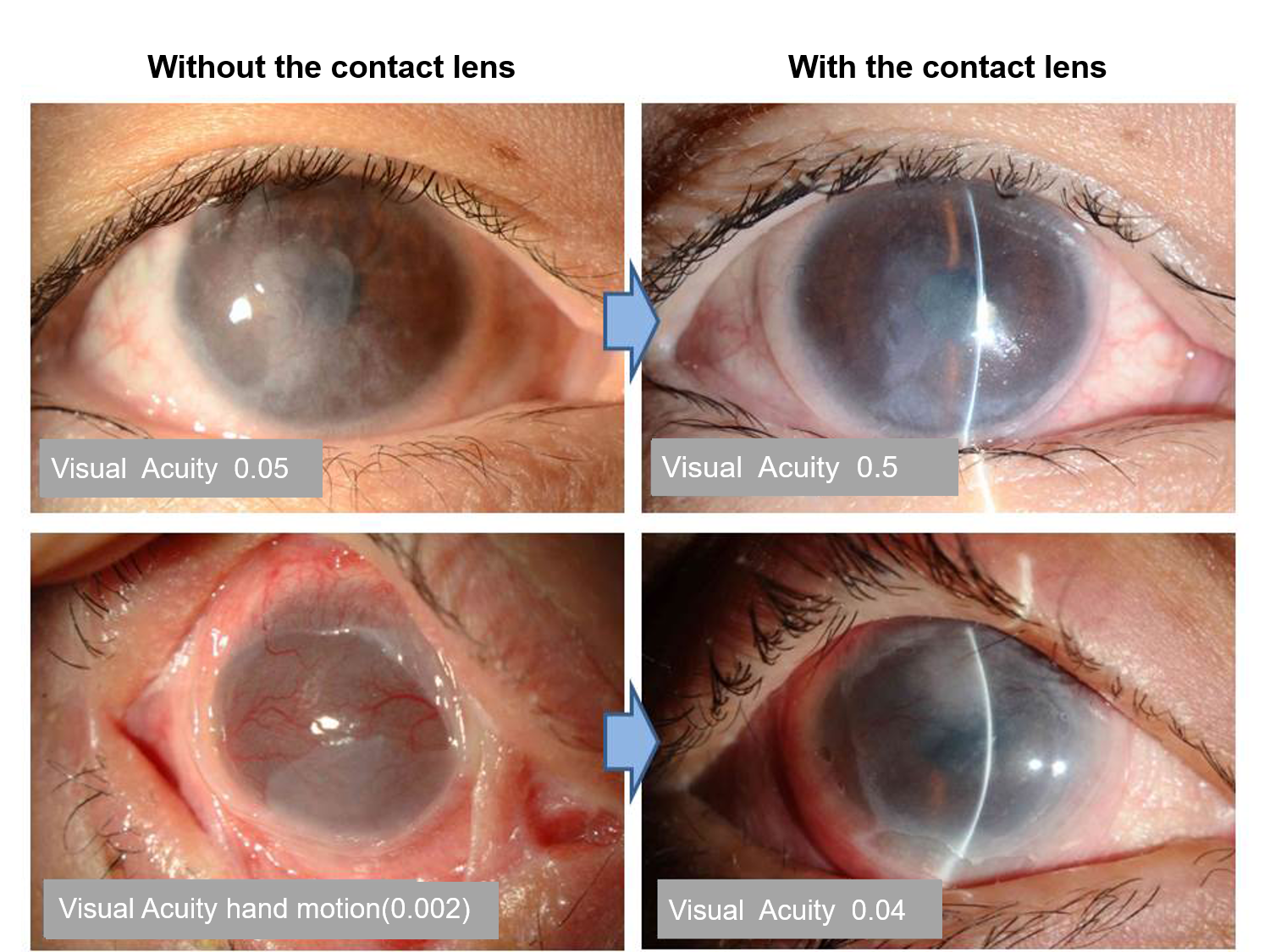Learn more about New Treatments
“Cultivated autologous oral mucosal epithelial cell sheet transplantation,” transplantation of an epithelial sheet artificially made of the oral mucosa of a patient, has been developed as a new treatment method.

“Cultivated autologous oral mucosal epithelial cell sheet transplantation” was approved in July 2013 as Advanced Medical Care B for the indications of severe visual impairment and intractable epithelial defect caused by SJS or TEN. You can receive the treatment at the University Hospital, Kyoto Prefectural University of Medicine..
There is a non-surgical method of using the limbal-supported hard contact lens jointly developed by the Department of Ophthalmology of Kyoto Prefectural University of Medicine and Sun Contact Lens Co., Ltd. and approved as a new medical device. You may be able to achieve improved visual acuity, alleviation of pain due to dryness and stabilized surface of the eye with the contact lens.
The limbal-supported contact lens has a larger diameter of 13 to 14 mm as compared with the conventional hard contact lenses, which lets tears in between the lens and the cornea when you wear it, alleviates abnormal irregularities on the surface of the cornea and can correct visual acuity. The contact lens also suppresses evaporation of tears and alleviates signs and symptoms associated with dry eye.
The effectiveness of the contact lens differs among patients. So, a decision will be made on prescription of the contact lens after testing it in each patient. The contact lens started to be prescribed at the Department of Ophthalmology, Kyoto Prefectural University of Medicine in 2016 and is supposed to be prescribed also at Keio University and Tokyo Dental College in 2017.
